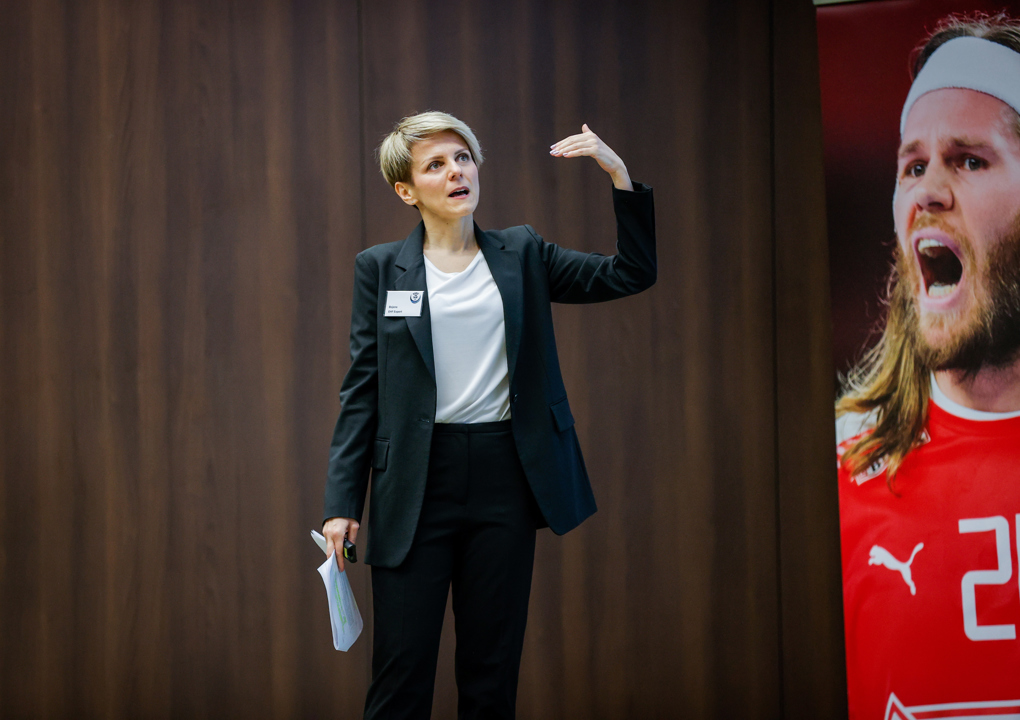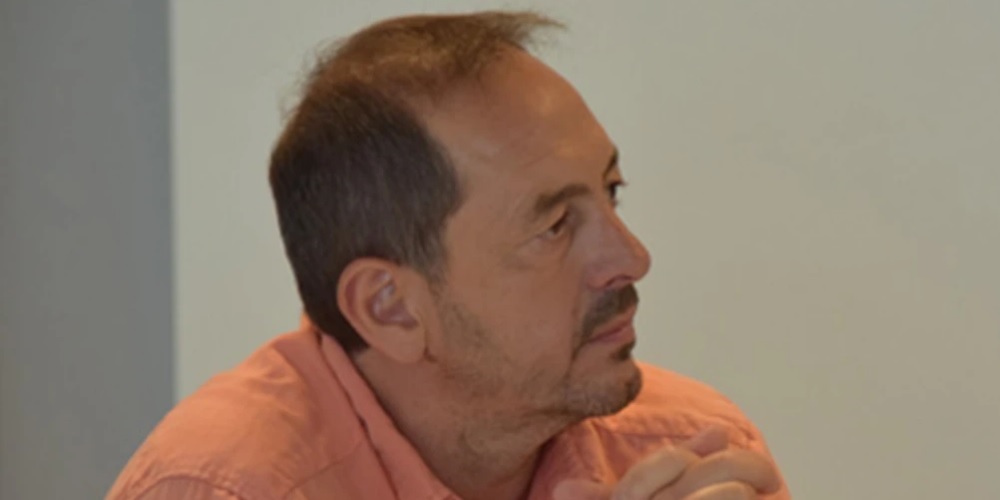Both Niggel and Jelicic are very clear about it: the best way to prevent stress becoming an issue is to educate young players before they become professional handball players.
“In my opinion, educating the players emotionally is as important as teaching them how to put their foot when they are about to shoot. It has to be a part of their building-up, as handball players and as human beings,” Niggel says.
As part of the EHF programme Respect Your Talent, Jelicic has been working with some of sports’ biggest talents.
“By raising their awareness, we are empowering our young players to more maturely approach their life and potential professional career,” Jelicic says.
“By addressing and educating them on the topic of pressure, what it is, how to recognise it, what are some ways to overcome it or cope with it, we are helping them become more responsible towards their mental health, and themselves in general.”
So, what can those up-and-coming players learn from the experience players?
“The players that have remained stable at top level in any sports, such as LeBron James, Leonel Messi or Nikola Karabatic, have simplified their relationship to their sport to the maximum. They accept the fact that the player in front of them will be giving 100 per cent to stop them. And instead of becoming frustrated, they instinctively try to find solutions,” says Niggel, who has worked in rugby, mountain climbing and motor racing as well.
With interest in handball growing, pressure on players keeps building.
“The sport is globally becoming a business. Now imagine the level of intensity when all those expectations and demands are placed on athletes – let alone elite ones,” Jelicic says.
Psychologists can help players cope with the pressure and the expectations.
“We, the qualified mental health professionals, can help by advocating for mental health in sports, by educating the athletes, coaches, managers, media and others professionally active in the sports industry to reduce the stigma and discrimination,” Jelicic says.
“And it is not just about helping the athletes, it is about the coaches, and all the other roles and professionals active in the process of reaching the optimum result.”

 In my opinion, educating the players emotionally is as important as teaching them how to put their foot when they are about to shoot. It has to be a part of their building-up, as handball players and as human beings.
In my opinion, educating the players emotionally is as important as teaching them how to put their foot when they are about to shoot. It has to be a part of their building-up, as handball players and as human beings.






